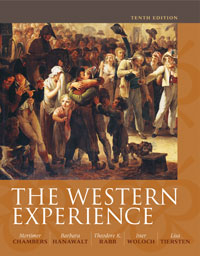| A) | The belief that the amount of wealth in the world was fixed, and that a nation should try to gain as much as it could at the expense of other nations, either by accumulating more gold or, in a more sophisticated version, by improving its balance of trade— that is, by exporting more than it imported. This doctrine led to some governmental regulation of commerce in a number of countries in the seventeenth and eighteenth centuries.
|
| B) | The application of statistical methods to the analysis of biology and medicine.
|
| C) | A central feature of Charles Darwin's (1809–1882) theory of evolution that suggests that only organisms best adapted to their environment survive and transmit their genes to succeeding generations, whereas those less adapted are eliminated.
|
| D) | The study of the improvement of the human race through selective breeding to eradicate less desirable traits in society. An extrapolation from the work of Charles Darwin, it was popularized by his cousin Francis Galton (1821–1911), in the nineteenth century.
|
| E) | A term first employed by the anthropologist Edward Tyler (1832–1917) to refer to vertigial cultural phenomena from the past that continue to survive even though they have lost their utility.
|
| F) | Term used to describe European countries in the context of the dominant economic and cultural relationships they had with their colonies.
|
| G) | Attitude of extreme and belligerent patriotism often used to gain popular support for war and other political causes.
|
| H) | Art form pioneered by Pablo Picasso and Georges Braque in the early twentieth century that rejected the artistic conventions of three-dimensional perspective and naturalistic representation for a flat, two-dimensional perspective and an abstract style.
|
| I) | The theory that the traits that increase an organism's (typically male's) success in mating and transmitting its genes are selected and perpetuated. Differs from natural selection, which focuses only on traits that influence survival.
|
| J) | A term of respect used by Indians to address female social superiors. Used in the nineteenth century to refer to British women in colonial India, the term came to connote the blatant ethnocentrism and spoiled behavior associated with these women.
|





